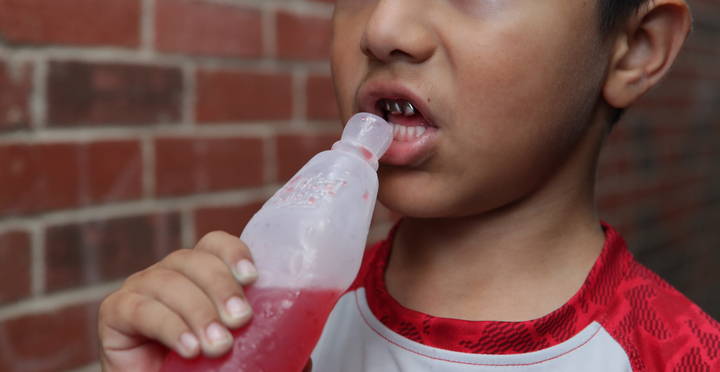
In the News
Sugary Drink Taxes Across The Country Are Planting Seeds For A Healthier Generation
-
Focus Areas
Chronic Disease Prevention, Healthy Communities -
Issues
Nutrition & Food Security

More than 2,000 Philadelphia children from low-income families are now able to attend pre-K centers, giving them the valuable opportunity to experience those benefits a year early.
In Berkeley, California, $13 per person per year is going into things like teaching residents how to eat a healthier diet.
These investments into the future are all being paid for by sugary drink taxes and represent only some of the progress being made in this effort.
Starting July 1, Boulder, Colorado; Oakland, California; and Cook County, Illinois, which includes Chicago, will join a list that also already includes Albany, California; and the Navajo Nation, which covers the corners of Arizona, New Mexico and Utah. San Francisco and Seattle have passed sugary drink taxes that will go into effect Jan. 1 to improve education, public health and other quality-of-life factors. So as of the start of 2018, more than 9 million Americans will live in communities where sugary drink taxes are reducing consumption of unhealthy beverages.
Faithful readers of this column know that this is a subject I’m passionate about. Last year, I dedicated a column to Philadelphia’s sugary drink tax, and another calling out the beverage industry, also known as Big Soda. I also wrote a column before the (successful!) votes on sugary drink taxes in Oakland, San Francisco and Albany, California.
I’m proud of the American Heart Association’s efforts in helping turn this into a coast-to-coast movement. I’m also grateful to the many other people and organizations who’ve made this a priority, especially former New York Mayor Michael Bloomberg and his team. We are committed to assisting the Partnership for Healthy Cities initiative, which seeks to advance the idea that when mayors and local leaders help their citizens live healthier and safer lives, cities become more prosperous, and which also has a particular focus on reducing sugary drink consumption.
The concept behind the sugary drink tax is simple. Since we know these products help fuel heart disease, obesity, diabetes other health crises, distributors must give back some profits for good use.
Berkeley became the first U.S. city to adopt such a plan in 2014. Recent as that is, it’s long enough for some quality analysis.
The short answer: It’s worked great.
A longer answer was published in April in the scientific journal PLOS Medicine. It includes the following details:
- Sugary drink sales declined by 10 percent in the first year.
- While this could indicate that buyers went outside the city limits for sugary drinks, more evidence points to a reduction in consumption. Water sales jumped 16 percent; fruit, vegetables and tea drinks rose 4 percent; and milk sales went up 1 percent.
- Overall, the food and beverage industry continued growing in revenue and jobs. Sales tax revenue (outside the sugary drink tax) rose more than any other sector and jobs rose by 7.2 percent across all food industry establishments (restaurants, supermarkets and grocery stores).
“These findings confirm that sugary drink taxes make health and economic sense at a time when obesity and diabetes epidemics are sweeping the country, and when health care spending is threatened,” one of the study’s co-authors, Dr. Lynn Silver of the Public Health Institute, wrote in an opinion piece published this month in The Hill.
Originally published by The Huffington Post
More Updates
Work With Us
You change the world. We do the rest. Explore fiscal sponsorship at PHI.
Support Us
Together, we can accelerate our response to public health’s most critical issues.
Find Employment
Begin your career at the Public Health Institute.



